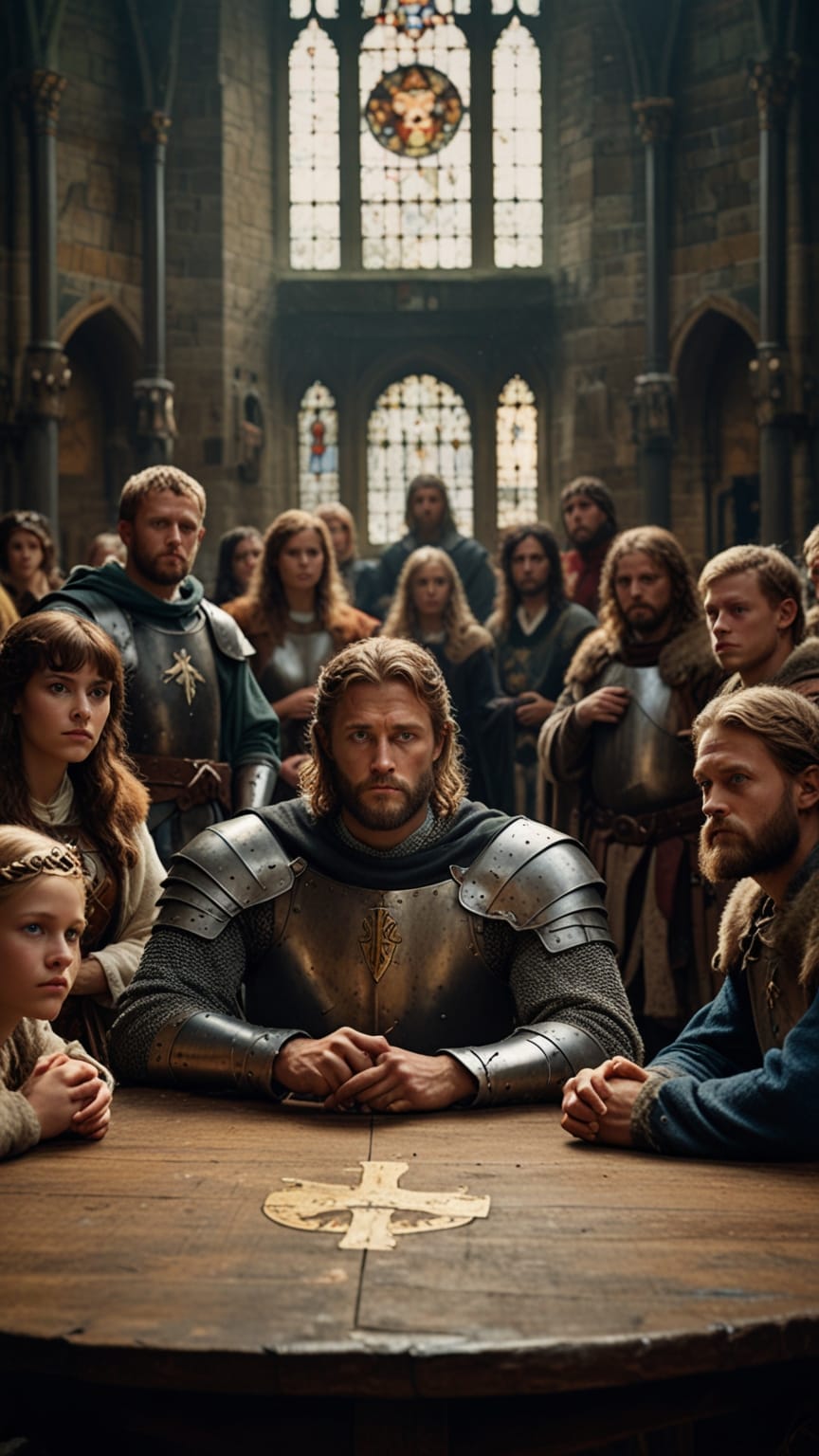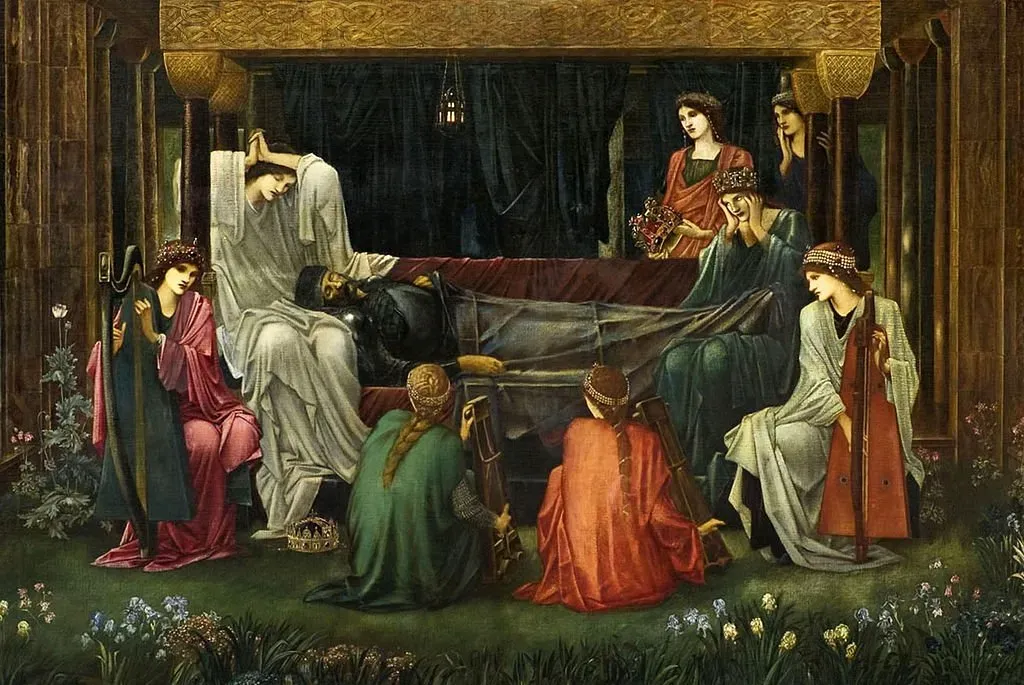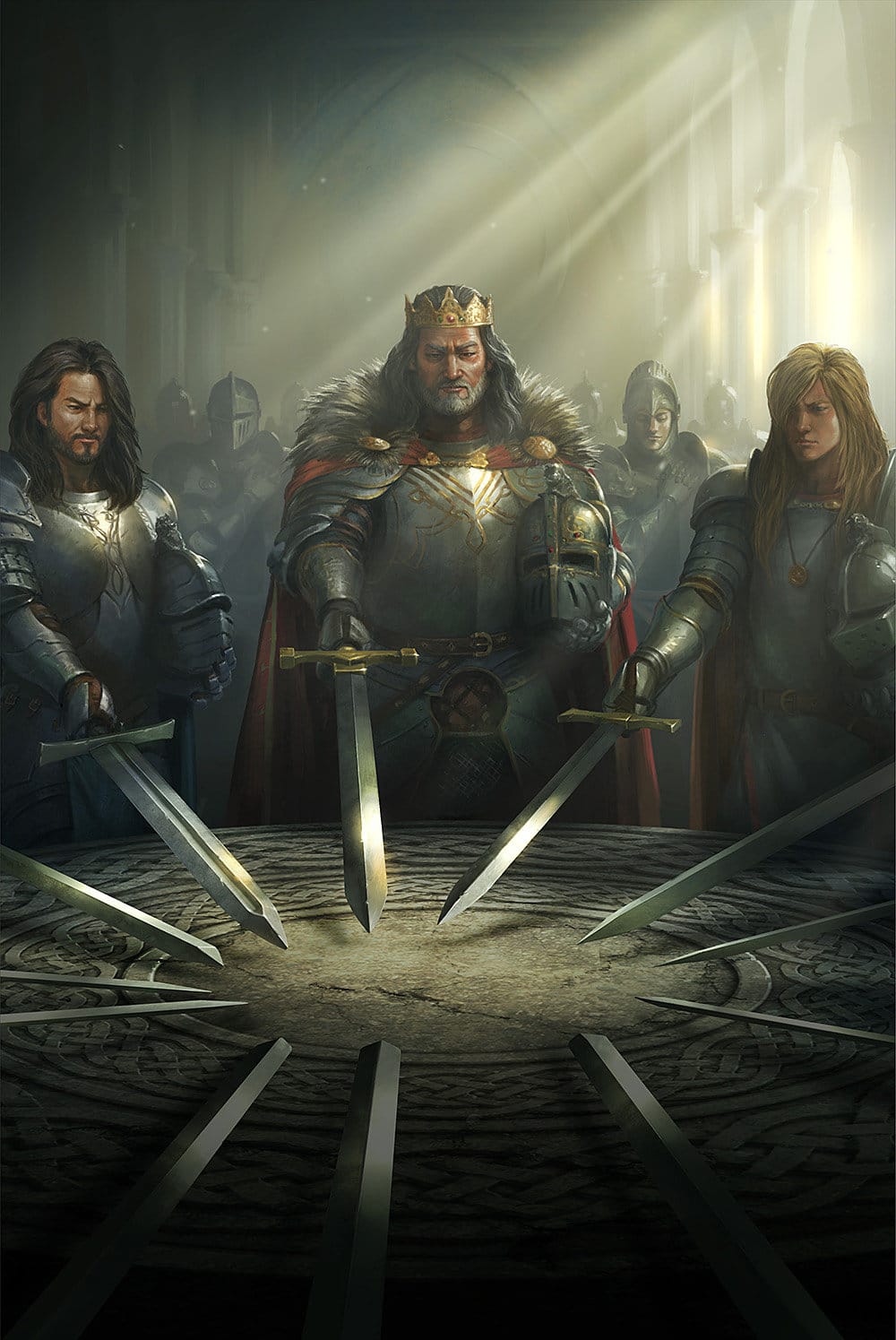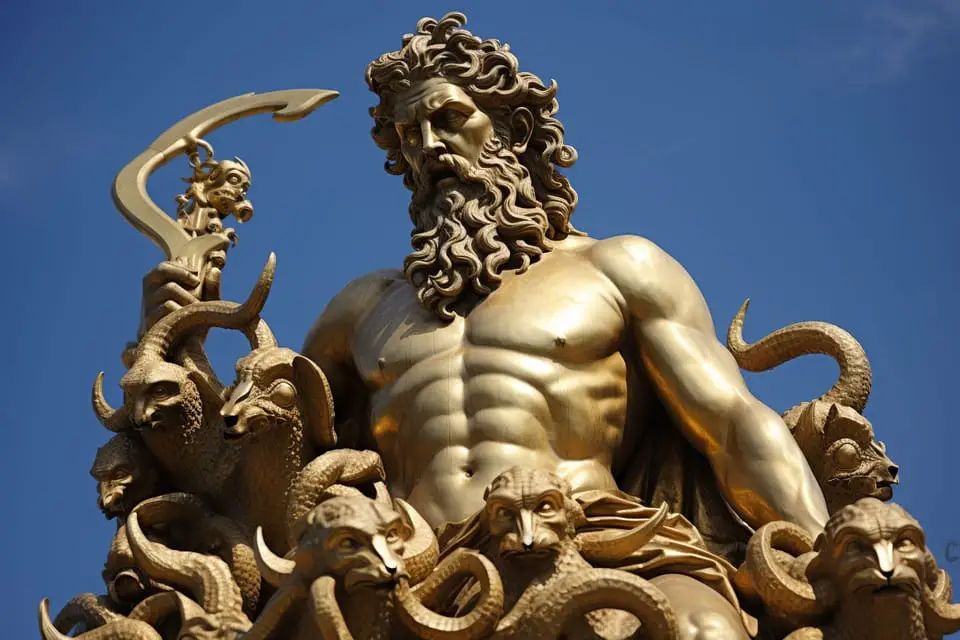King Arthur’s Round Table: History, Symbolism, and Legends

King Arthur’s Round Table is one of the most enduring symbols of medieval mythology. But what is the history behind this iconic table? In this article, we’ll delve into the mythology and symbolism of the Round Table, exploring its origins, significance, and impact on Western culture.
The Origins of the Round Table
The Origins of the Round Table The concept of King Arthur's Round Table has been a cornerstone of Arthurian legend for centuries, but its origins are shrouded in mystery.
The first written records of the Round Table can be found in the 12th-century poem "Wace's Roman de Brut," which describes a circular table where King Arthur and his knights gather to discuss important matters.

However, it is believed that the idea of a round table may have been inspired by earlier Celtic and Roman traditions. According to Wikipedia, the Round Table may have been influenced by the ancient Celtic tradition of gathering around a circular feast, where warriors and leaders would sit together to share food and discuss important issues.
Similarly, the Roman Empire also used circular tables for meetings and banquets, which may have been adopted by the early Christian Church as a symbol of unity and equality. The historical inspirations for the Round Table are also debated among scholars.
Some believe that it may have been inspired by the real-life meeting places of ancient Celtic and Roman leaders, such as the Council of the Gauls or the Roman Senate.

Others argue that it may have been a literary device created by medieval writers to emphasize the unity and equality of King Arthur's knights. Regardless of its historical inspirations, the Round Table has become an enduring symbol of King Arthur's court and a powerful metaphor for unity, equality, and justice.
As we will explore in the next chapter, the symbolism of the Round Table is deeply rooted in its association with these values, and has continued to inspire artistic and literary interpretations for centuries.
The Symbolism of the Round Table
The Symbolism of the Round Table The Round Table, a central element in the legend of King Arthur, is imbued with rich symbolism that reflects the values of unity, equality, and justice.
According to Wikipedia, the Round Table was first introduced by the 12th-century poet Wace, who described it as a symbol of the fellowship and equality of Arthur's knights. The table's circular shape, with no head or foot, signified that all who sat at it were equal, with no single individual holding a position of superiority.

This emphasis on equality was a radical departure from the traditional feudal hierarchy, where lords and vassals were strictly ranked. The Round Table, by contrast, represented a more democratic and inclusive ideal, where each knight had an equal voice and an equal stake in the decision-making process.
This sense of unity and shared purpose was further reinforced by the table's association with the concept of justice. In many accounts, the Round Table is depicted as the site of important gatherings and councils, where the knights would come together to discuss matters of justice and morality.
The Round Table's symbolism also extends to the realm of spirituality. In some interpretations, the table is seen as a symbol of the unity of Christ and his apostles, with the circular shape representing the eternal and unbroken bond between them. This spiritual dimension is further underscored by the table's association with the Last Supper, where Jesus and his disciples shared a meal together in a spirit of fellowship and unity.
In conclusion, the Round Table is a powerful symbol that reflects the values of unity, equality, and justice that are at the heart of the Arthurian legend. Its significance extends beyond the realm of literature and history, speaking to fundamental human aspirations for fellowship, cooperation, and moral purpose.
The Legends of the Round Table
The legends of the Round Table are an integral part of the Arthurian mythology, with many stories and exploits surrounding the table and its occupants. According to legend, the Round Table was a symbol of unity and equality among King Arthur's knights, with each knight having an equal place at the table.

The table was said to have been given to Arthur by his father-in-law, King Leodegrance, and was used for many important gatherings and meetings. One of the most famous stories surrounding the Round Table is the tale of Sir Lancelot and the Holy Grail. According to legend, Lancelot was one of the most trusted and loyal of Arthur's knights, but he was also flawed and prone to temptation.
His love affair with Arthur's wife, Guinevere, ultimately led to the downfall of Camelot and the destruction of the Round Table. Another notable legend surrounding the Round Table is the story of Sir Gawain and the Green Knight. In this tale, Gawain, one of Arthur's most chivalrous knights, accepts a challenge from a mysterious green knight who appears at the Round Table.
The story is a classic example of the chivalric code, with Gawain facing many challenges and temptations as he attempts to fulfill his obligations to the green knight. The Round Table was also said to have been the site of many important discussions and debates, with Arthur and his knights gathering to discuss matters of state and justice.
The table was seen as a symbol of the democratic and egalitarian ideals of Camelot, with each knight having an equal voice in the discussions. Overall, the legends of the Round Table are an important part of the Arthurian mythology, offering insights into the values and ideals of the time.
They also provide a fascinating glimpse into the lives and exploits of King Arthur and his knights, and the struggles they faced as they sought to uphold justice and defend the realm.
Conclusions
In conclusion, King Arthur’s Round Table is a rich and complex symbol that has captivated audiences for centuries. From its origins in medieval literature to its enduring presence in modern culture, the Round Table remains a powerful symbol of unity, equality, and justice.




